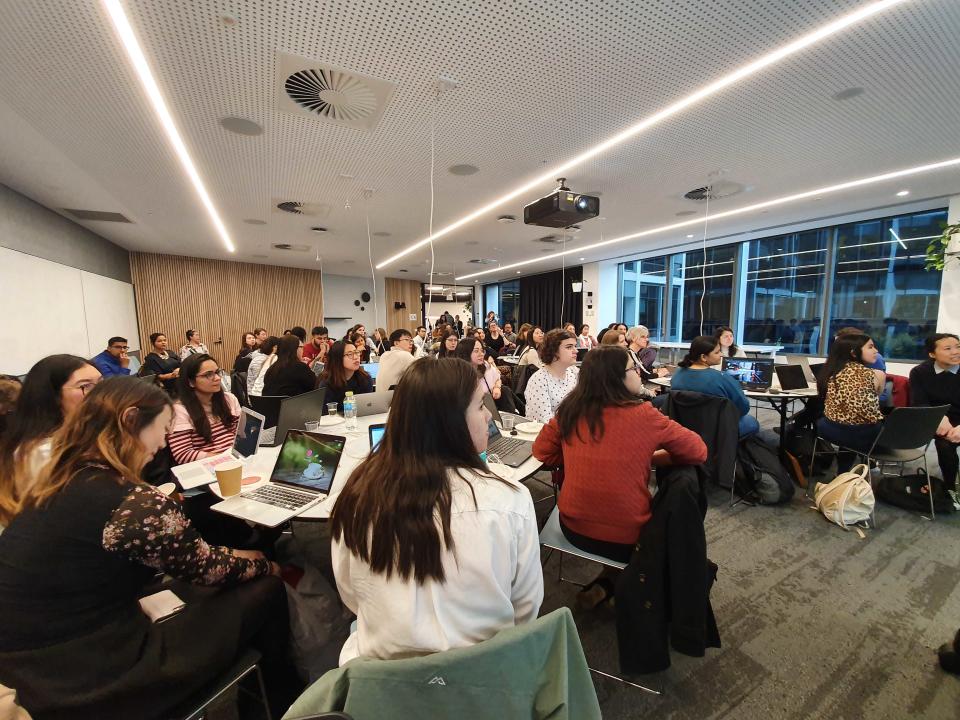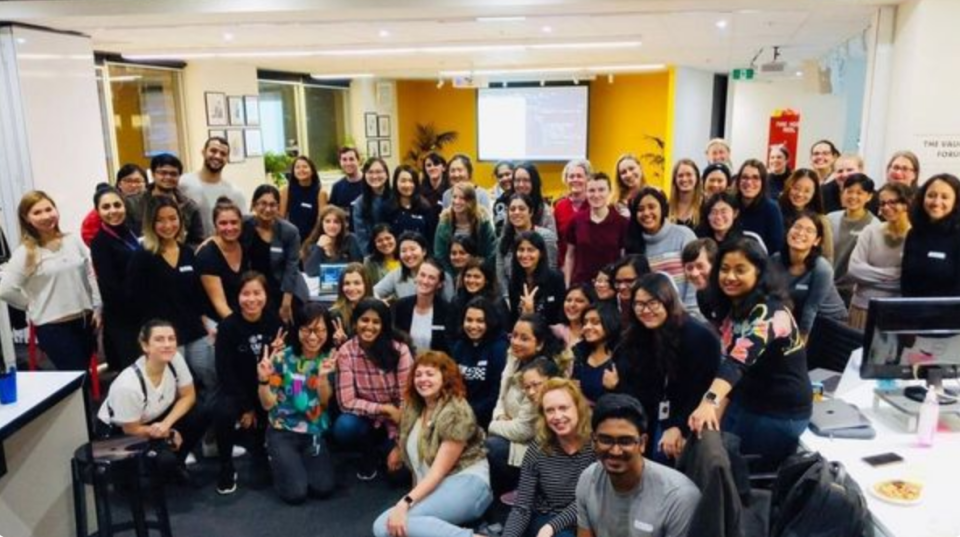This is the $100k+ job begging for women

In 2017, the Australian Bureau of Statistics Women in STEM report found Australian women needed more equal representation in technical coding industries.
Research shows the number of women in tech - both in the workforce and in secondary and tertiary education - is declining, and the government thinks it’s a huge problem.
“Gender inequity not only limits the available talent – it is bad for business,” the government’s Advancing Women in Stem report found. “Gender diverse companies are 15 per cent more likely to financially outperform their counterparts.”
But when tech - particularly coding - jobs are paying over $100,000, why aren’t women getting involved?
According to a 2008 Harvard Business Review study, around 50 per cent of women in tech jobs eventually left the profession - and the Australian Computer Society warned the same thing could happen today, which could see an exodus of 40,000 women from the IT talent pool.
Also read: This woman ran away from home and then became a millionaire
Also read: Instagram executive Eva Chen shares her career advice
Also read: At 9 months pregnant this Sydney woman started her first business
On top of that, Boston Consulting Group found Australia will face a labour shortage of up to 18 per cent by 2030 - and much of this shortage is expected to be in the IT sector.
It’s a strange phenomenon, given women actually pioneered the coding industry.
Ada Lovelace was the world’s first computer programmer, drafting plans for how a machine called the Analytical Engine could perform computations. The machine, which was then invested by her friend Charles Babbage, is considered to be the first ever computer.
Grace Hopper was an admiral in the US Navy, and a computer scientist who was one of the first programmers for the Harvard Mark I computer, which was used in the war effort in World War II.
But the history of women and computer programming is something Gretchen Scott, director of Women Who Code and a coder herself, often forget, because it was the men that followed them that gave tech a reputation - and a higher paycheque.
“Women were the main programmers during World War II because all the men were at war,” Scott told Yahoo Finance.
“And then the men came back and kicked the women out of writing - and then it got paid well. If you were a woman, you were considered a menial worker, and it didn’t become a prestigious job until the men came back from war.”
And now that the industry is rife with men, women are finding it tough to stick it out. But Scott says it’s one of the best industries she’s ever worked in.
What’s coding actually like?
Coding might make you think about a man in a dark room staring at a computer screen, typing frantically to hack into an evil spy’s account and save mankind.
Weirdly, it’s not like that at all.
“If your job is a developer, you will not be going to work and writing code for eight hours a day. That’s not how it is,” she said.
“You're not sitting at your computer hypnotised, ignoring the world. You’ll never be writing code by yourself - everyone's working in teams. So you'd be the worst team member if you cut everyone off.”
According to Scott, a regular day would involve a stand up meeting to gear you up for your day, and then “pair coding”.
“A day would have a stand up meeting at the start to talk about where you're at, what you're stuck on, what you need help with and what you're waiting for,” she said.
“Everyone has jobs, in building and so forth. But then, in terms of actual coding, often you'll spend your time doing pair programming,” which involves, “one person plugging in, and one person talking through why that would be the code that fixes this problem.”
Women Who Code run monthly meet-ups, which involve anything from technical workshops to professional development workshops.
“You can come and do some coding, or often they’re around gendered issues, for example about how to ask for a pay rise,” Scott said.


But there is a branding issue
While Scott says the women in the tech industry are well-supported, she does think scouting women is tough due to the image associated with the industry.
“Tech has a bit of a weird branding issue,” Scott said. “Tech encompasses maths and literacy and art, and I think we’re putting it to the side as something separate, but actually tech is all of those things.”
“It’s got such an image issue - you can do such cool stuff with it. You can write code to make art.”
And part of that stems from computer games.
“Most of the technology time where you start wanting to learn to code is when you’re playing video games, and video games are so gendered,” Scott said.
“They’re designed for boys, by boys. They’re hyper-sexualised. No wonder girls are dropping out.”
So is the job compatible with women?
Tech jobs can often be done remotely, which means it’s actually really flexible, particularly for the generation that’s coming through now, Scott said.
“Companies are doing amazing things, like MYOB run a programmed called DevelopHer, where they hire - it’s competitive - women, pay them to go through boot camp training to learn to code, and then bring them back into the organisation.
“When they [women] get back, they’re really well-supported.”
And while it might be a little man-heavy, the industry has overcompensated so much that it’s actually become a great workplace for women.
“There are really amazing groups and support networks to counter that [gender inequity in tech],” she said.
“It is more supportive and encouraging women than any other workplace I’ve been in. There’s so much camaraderie between women in tech, and across all parts of technology - designers, managers - everywhere.”
Make your money work with Yahoo Finance’s daily newsletter. Sign up here and stay on top of the latest money, property and tech news.

 Yahoo Finance
Yahoo Finance 